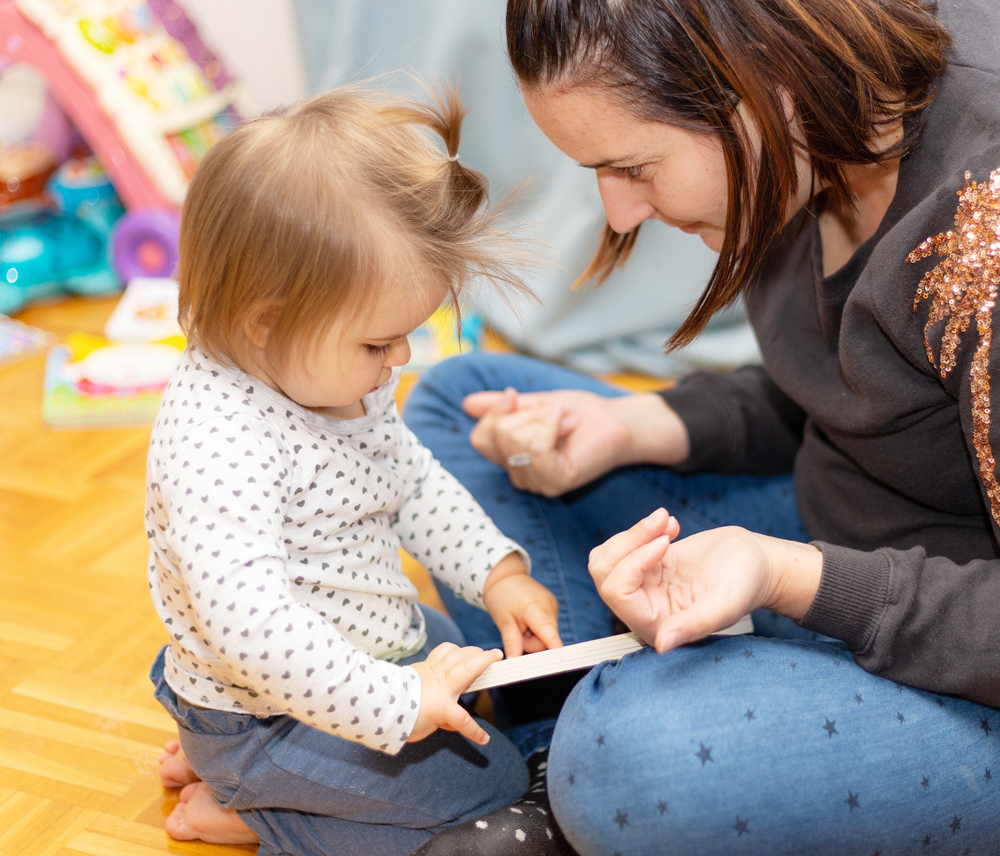Expanding Services: KSSB Now Provides Resources for Birth to School-Age Children

Seeing a need for more resources and support in the state of Kansas, the Kansas State School for the Blind added two early childhood special educators to its Field Services division as well as an on-campus early education classroom.
Sabrina McAdoo, M.A.Ed, ECSE, TSVI, and Susan Threinen, M.S.Ed, ECSE, TSVI, support agencies across the state by providing direct instruction, consultation, evaluations and trainings for children 8 and under who have a visual impairment.
“Our hope is that we will build a program that combines hands-on trainings, consultations and support, evaluations, resources and materials, and family support education and training for children and families in Kansas with children ages birth to age 8 who have visual impairment including deaf blindness,” said Threinen.
Field services
The KSSB Field Services program provides specialists across the state that support agencies, school districts and other programs who request support and/or training and resources.
“We are hoping to provide support in any way that is needed to families across the state who have young children with vision impairments,” McAdoo said. “We also want to give technical support to early childhood staff who have children with vision impairments on their caseloads. We would like to be able to assist with early identification of vision impairments and then how to provide appropriate services to those children through the framework that is already established within the state. Here at the beginning, we are really working on establishing connections with all the agencies in the state who are working with families and their children with vision impairments.”
McAdoo supports the western half of Kansas, while Threinen provides support for the eastern half of Kansas. If needed, both specialists can provide direct services for an agency or program. Threinen currently serves as a direct provider for the Johnson County, Kan., early intervention program as well as preschool children in Topeka.
“I would really like to build the family support piece of our program,” said Threinen. “I would like our program to be the gold standard in how to build relationships with families. These families are working through a lifelong disability, and it’s immediately apparent that the child will have a different road to take as they grow up. Compassion, support, resources, research, access to materials and empowerment trainings are all ideas that I have in my head, both for families and for direct service providers.”
On Campus
KSSB, at present, also provides an early childhood classroom for students ages three to eight who are blind/visually impaired with additional disabilities, including those who are deaf-blind (those who experience both a hearing and vision loss).
The program, led by Lila Taylor, specializes in building a child’s expressive and receptive communication through routines and experiential learning. Children in the program are considered “emergent” communicators who are learning both skills and concepts.
“KSSB is fortunate to have staff with extensive experience and exceptional knowledge in educating children who are deaf-blind,” said Jon Harding, superintendent for the school. “KSSB hosts the Kansas Deaf-Blind Project, which assures the alignment of classroom instruction with the latest research and promising practices.”


